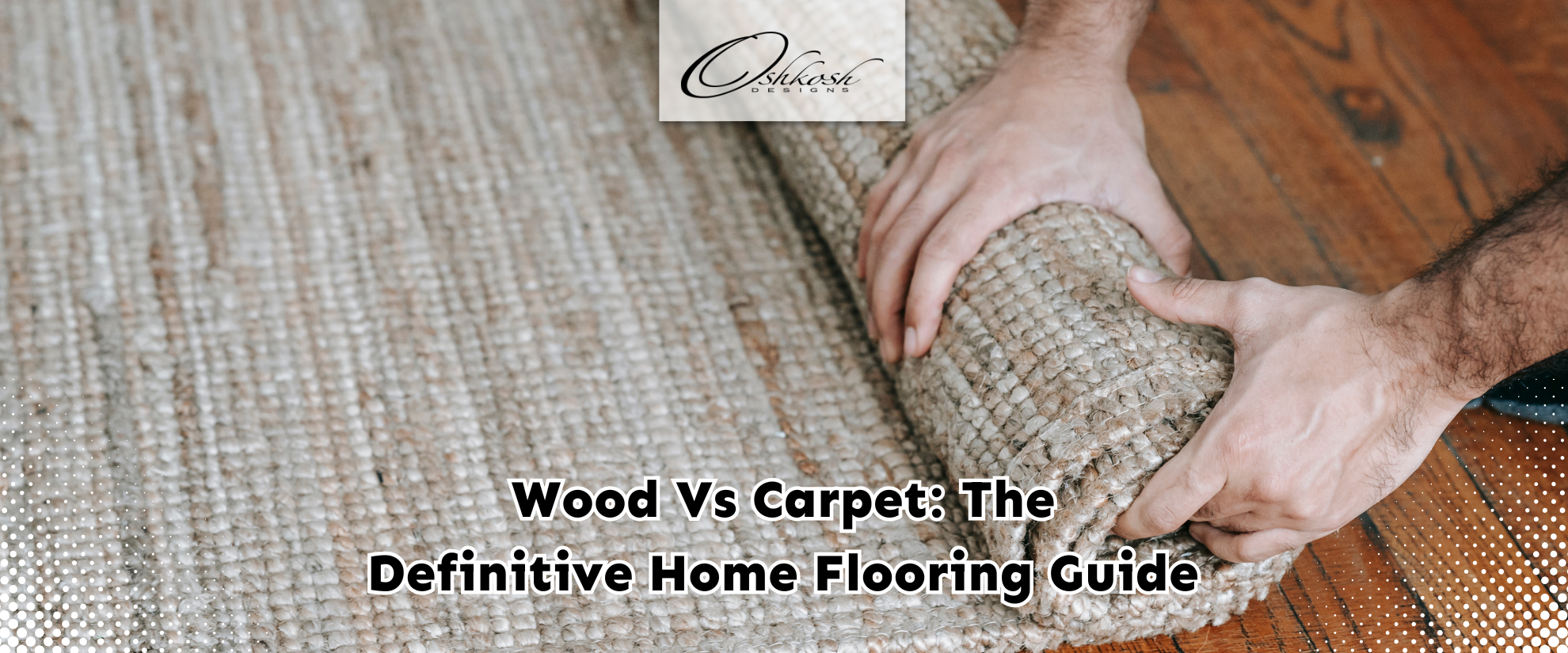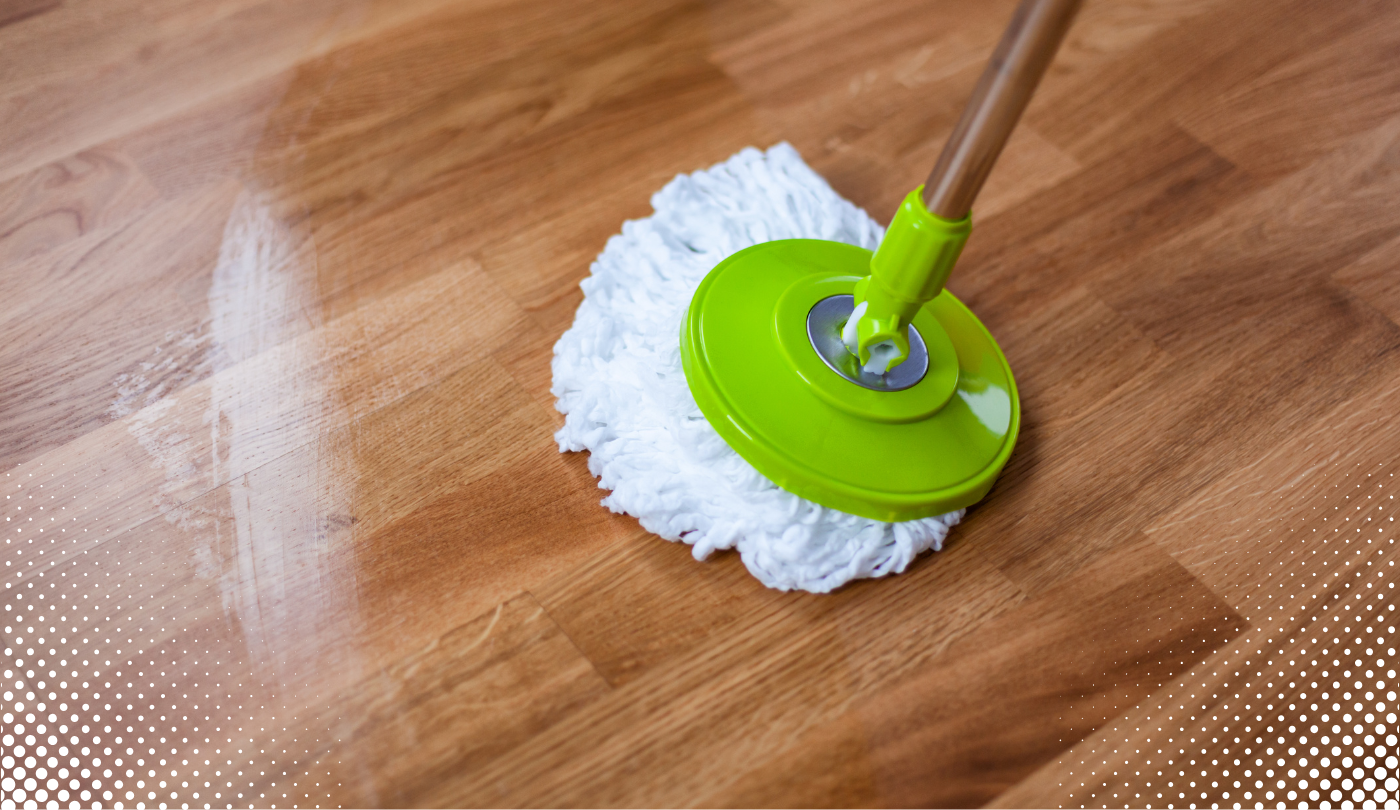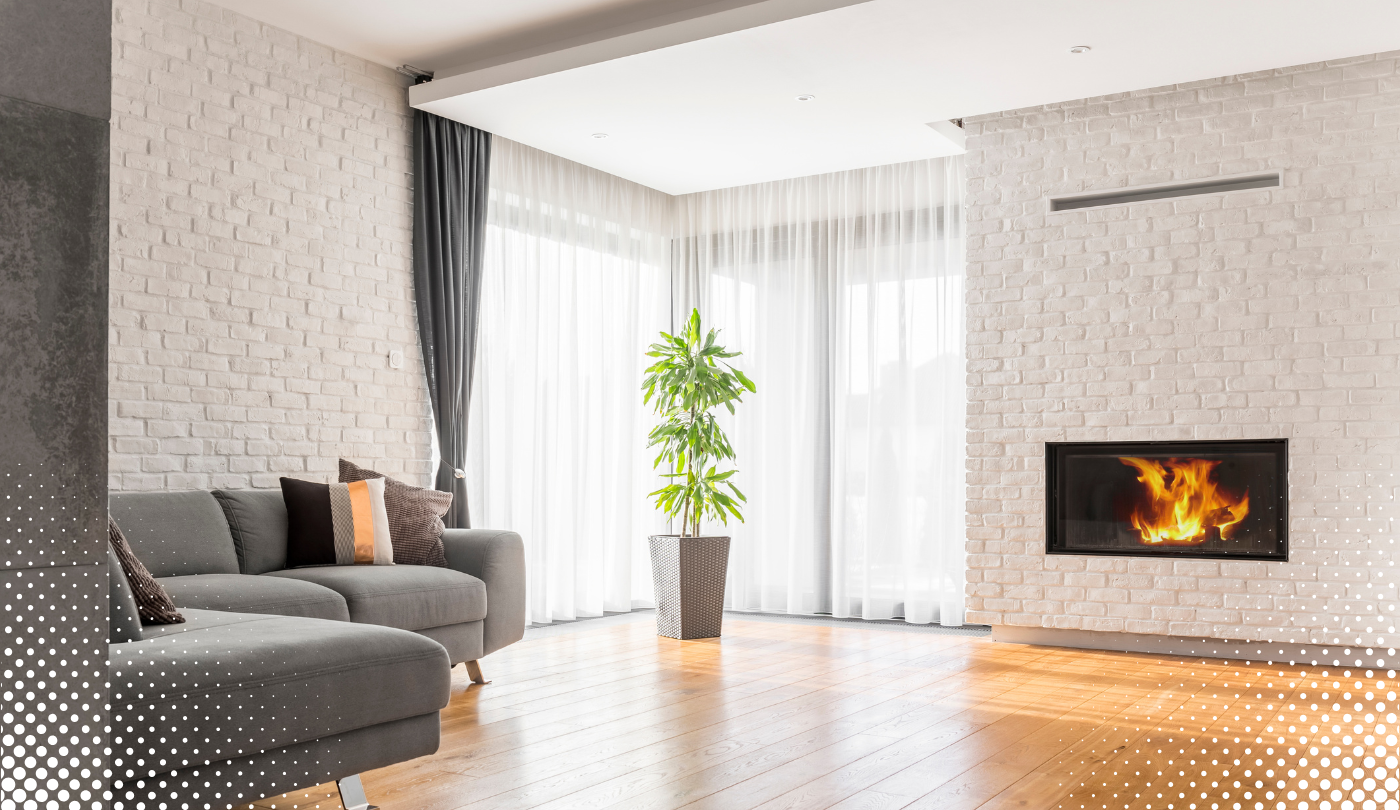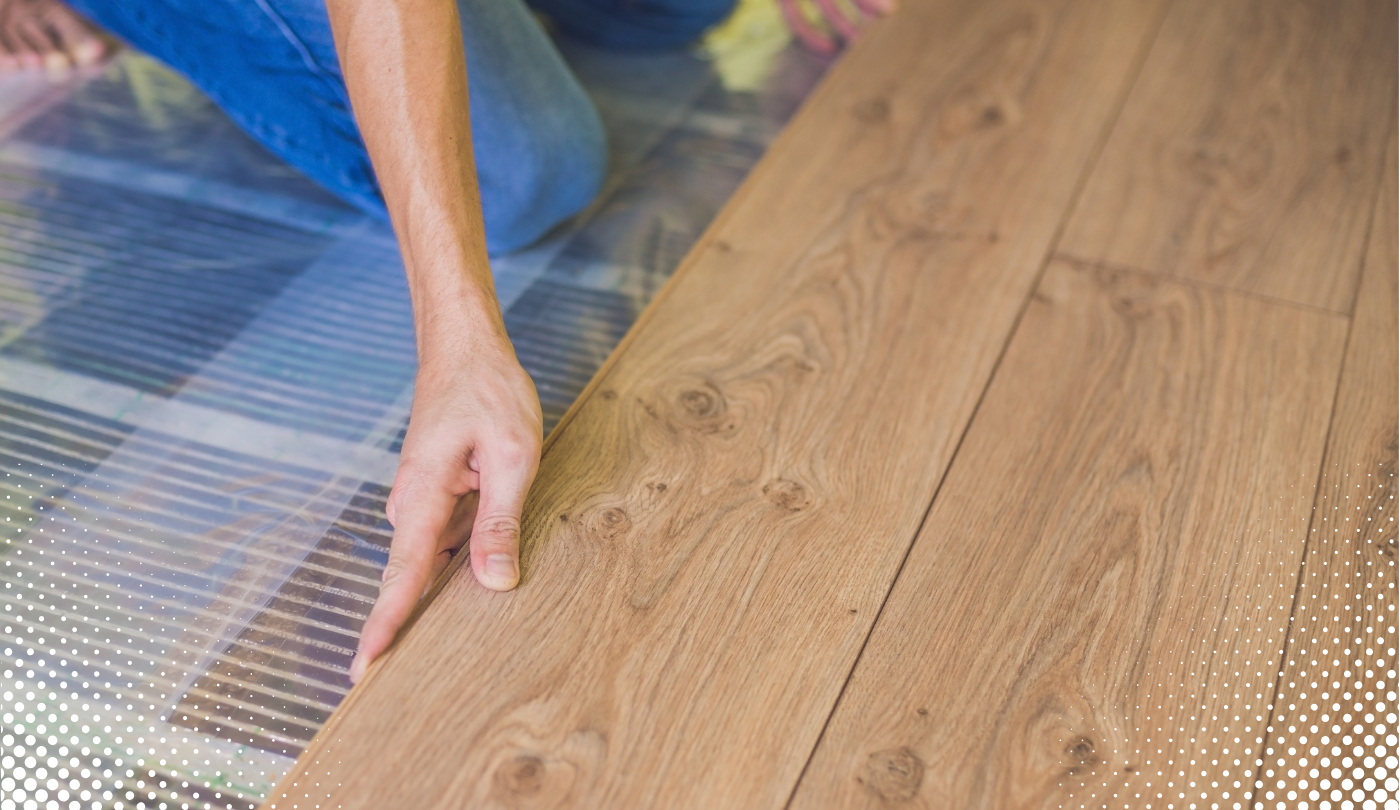Choosing the right flooring for your home is no small decision. With so many options available, it often comes down to two popular choices: wood and carpet. Both have their own unique benefits and drawbacks, making it important to consider factors like durability, comfort, maintenance, and style. In this guide, we’ll break down the pros of wood and carpet flooring to help you make the best choice for your space.
Key Takeaways
- Hardwood flooring has a higher initial installation cost than carpet but offers greater long-term value due to its durability and lower maintenance requirements.
- Hardwood floors can last a lifetime and are easier to maintain, while carpets require regular deep cleaning and need to be replaced every 10 to 15 years.
- For homes prioritizing health and resale value, hardwood is preferable due to its allergen resistance and ability to enhance property marketability.
Durability and Lifespan
When selecting flooring, the durability of carpet vs hardwood plays a pivotal role in the decision. Carpets of good quality have an estimated lifespan of 10 to 15 years before replacement becomes necessary. Hardwood floors, on the other hand, can endure for many generations or even surpass a century when they are properly maintained, making them an outstanding option for those looking for a lasting floor solution.
One exceptional attribute of hardwood flooring is its capacity to be refinished repeatedly. This process rejuvenates the wood’s original luster while considerably prolonging its serviceable life. To preserve their visual appeal, it’s recommended that hardwood floors undergo refinishing approximately every five to ten years. Consequently, this ensures that they continue to be resilient and visually appealing choices throughout numerous decades.
Maintenance and Cleaning
Taking care of and cleaning your floors is an essential factor when it comes to selecting flooring. Hardwood floors stand out for their ease of cleaning and upkeep compared to carpeted surfaces. Hardwood maintenance is generally easier and less time-consuming than carpet maintenance. A quick sweep or a gentle mopping can usually keep wood flooring in excellent condition. Routine cleaning of hardwood not only helps maintain its aesthetic appeal but also reduces the presence of allergens, which is advantageous for those with allergies.
On the other hand, carpets demand greater effort to stay clean. Consistent vacuuming is necessary to eliminate surface grime, while annual deep cleans are crucial in preventing allergen accumulation and preserving their look. These practices might contribute to additional expenses over time due to carpet maintenance being more demanding both financially and physically.
Hardwood floors support a healthier indoor atmosphere by not harboring allergens like carpets do – this aspect notably improves air quality within homes, making them especially suitable for individuals who suffer from allergies or anyone interested in fostering a health-conscious living environment.
Aesthetic Appeal and Versatility
When it comes to the aesthetic appeal and adaptability of floors, individual tastes really come into play. Hardwood flooring is revered for its classic beauty and ability to uplift both contemporary and traditional styles within interior spaces. The inherent patterns in wood, coupled with the variety of available stains, provide a distinctive customization that can flawlessly enhance various design themes.
Conversely, carpeting presents an extensive array of hues, designs, and textures that empower homeowners to unleash their creativity in terms of interior decor. Whether your inclination is towards subtle shades or striking motifs, carpet choices can be adapted to suit any personal style preference. Nevertheless, it’s important to note that trends in carpets may change swiftly. This could prompt more frequent updates as you strive to stay current with evolving tastes in design aesthetics.
Health and Allergies
Individuals with health concerns and allergies might find hardwood flooring to be a more beneficial choice. Hardwood floors do not capture allergens like dust mites, pet dander, and additional small particles in the same way that carpet fibers do, which leads to better air quality inside homes. For those who are affected by allergies or desire a healthier living space, selecting hardwood is an advantageous decision.
On the other hand, carpets can accumulate allergens quite easily. To mitigate the accumulation of dust and potential allergenic substances within the fibers of a carpet, it’s essential to carry out thorough cleanings on a regular basis. This issue is recurrent and has implications for indoor air cleanliness. It could also contribute to adverse health outcomes for people prone to sensitivities. Consequently, when considering households with members sensitive to allergies, choosing hardwood flooring is clearly preferable.
Comfort and Insulation
Carpet often surpasses hardwood floors in terms of comfort and insulation. It offers a cozy, warm underfoot experience that is especially appreciated in bedrooms and communal spaces where walking barefoot is common. The cushioning nature of carpets diminishes the likelihood of injuries resulting from falls—an important consideration for households with young ones.
The carpet boasts outstanding insulative capabilities due to its fibers forming air pockets, which improve thermal retention, aiding in heat preservation throughout winter and possibly reducing heating costs. In contrast to hardwood floors that may necessitate the addition of area rugs to reach comparable levels of comfort, carpet naturally presents a more plush walking surface along with enhanced sound absorption qualities.
Sound
One of the key differences between carpet and hardwood flooring is the way they handle sound. Carpet is a natural sound absorber, making it an excellent choice for homes with multiple levels or open floor plans. The dense fibers and padding of carpeting can reduce sound transmission through the floor, creating a quieter and more serene environment. On the other hand, hardwood flooring can be noisy, especially with foot traffic. However, there are ways to mitigate this issue, such as installing area rugs or using underlayment materials that can help reduce noise.
Environmental Impact
Considering the environmental footprint of flooring materials is becoming more critical. Hardwood floors originate from a renewable resource that can be sustainably restored by conscientious tree replanting practices. The trees harvested for hardwood play a role in absorbing carbon dioxide, thus aiding in the reduction of greenhouse gas emissions. Since wood is capable of natural decomposition, it stands as an environmentally friendly choice.
On the other hand, synthetic carpeting relies on finite materials derived from petroleum and contributes to non-biodegradable waste in landfills. These carpets have the potential to release volatile organic compounds (VOCs) over time, adversely affecting indoor air quality.
Opting for hardwood instead of synthetic carpet demonstrates a strong commitment to sustainability and ecological stewardship—making it not just a design choice but also an ethical one.
Room Suitability
The appropriateness of flooring choices varies depending on the room and its usage. For areas such as living rooms and dining rooms that experience high traffic, hardwood flooring is an excellent option due to both its long-lasting nature and elegant aesthetic. Hardwood floor selections are capable of enduring daily wear, thus serving as a sensible selection for households with constant activity.
In contrast, carpeting tends to be more suitable for bedrooms and spaces where creating a warm, inviting atmosphere is key. Carpet offers a soft surface that is comfortable for walking barefoot or ideal in play areas for children when compared with other materials like hardwood.
When selecting the most fitting flooring type, it’s important to take into account your routine activities as well as any requirements related to your lifestyle—especially if you have pets or young ones at home.
Water and Heat Resistance
Selecting the appropriate flooring material necessitates considering resistance to water and heat. Both carpet and hardwood are susceptible to deterioration due to contact with water or exposure to high temperatures. Carpets can catch fire more readily, given their lower ignition point, and they are unsuitable for wet or humid environments as they promote mold development. Hardwood offers greater resistance against heat but is prone to warping and cracking if subjected continuously to moisture.
Engineered wood flooring possesses a degree of water resistance, making it an apt choice for places like basements or rooms that experience humidity fluctuations. Nevertheless, in spaces where there is significant exposure to water, such as bathrooms, neither carpets nor traditional hardwood floors are recommended choices. Due to its reduced thermal conductivity compared with other materials, hardwood is better at resisting heat. This property helps maintain cooler conditions within homes situated in damp climates by absorbing moisture from the air and later releasing it.
Installation Process
The process for installing hardwood flooring is distinct from that of carpet, with both requiring the expertise of a professional installer to guarantee their durability and appearance. Hardwood planks necessitate an adjustment period within the room to stabilize in accordance with its temperature and humidity, which can span from two days up to two weeks. Following this acclimatization, any existing carpet must be removed to access the underlying subfloor. Thereafter comes the task of sanding down and applying successive layers of finish onto the hardwood.
Conversely, laying down new carpet typically requires less time than fitting hardwood floors does. Even though it’s relatively quicker by comparison, having a professional install your carpet remains advisable as they will ensure it’s correctly stretched into place and anchored securely.
Personal Preference and Lifestyle
The decision to install wood or carpet flooring hinges on your individual taste and the way you live. The flooring industry offers a wide range of options to suit different lifestyles and preferences. Evaluate how each type of flooring enhances the aesthetic of your home and caters to the requirements of your household. Hardwood flooring is frequently favored in terms of expense, upkeep, longevity, and health benefits, presenting a sensible choice for numerous households. It’s important to carefully balance these aspects when assessing whether carpet or hardwood better suits your needs.
Should coziness and a sense of warmth be high on your list, then carpet may prove to be more suitable for you. Pondering over what aligns best with both your personal preferences and everyday life is vital while making a choice between hardwood floors versus carpets in securing an ideal setting within your residence.
Making the Right Choice for Your Home
When it comes to choosing between carpet and hardwood flooring, the decision depends on your unique needs, preferences, and the specific purpose of each room. Both options have their own strengths; carpets offer warmth and comfort, while hardwood floors provide timeless elegance and durability. By carefully weighing the pros and cons, you can select the flooring that enhances both the aesthetics and functionality of your home while aligning with your lifestyle.
At Oshkosh Designs, we specialize in crafting premium hardwood floor designs that bring character and sophistication into your space. If you’re leaning toward hardwood, explore our expertly designed options to find the perfect fit for your home. Let us help you create a space that reflects your style and stands the test of time. Ready to transform your home? Contact us to get started!
Frequently Asked Questions
Why do people prefer carpet over hardwood?
Many people prefer carpet over hardwood due to its comfort and warmth, which creates a cozy atmosphere in the home. Its softness is especially beneficial for families with young children, as it provides a safe and comfortable space for play.
Is it better to have carpet or hardwood floors in a living room?
Hardwood floors are preferable for a living room due to their longevity, often lasting for generations with proper care, while carpets typically need replacement every 10 to 15 years.
Therefore, hardwood offers a more durable and lasting solution.
How long do hardwood floors last compared to carpets?
Hardwood floors typically last a lifetime with proper maintenance, while quality carpets generally endure for about 10 to 15 years.
Thus, hardwood is a more durable flooring option.
Which flooring option requires less maintenance?
Hardwood floors require less maintenance than carpets, as they are easier to clean and do not need regular vacuuming or deep cleaning.
Thus, opting for hardwood is advisable for lower maintenance needs.





